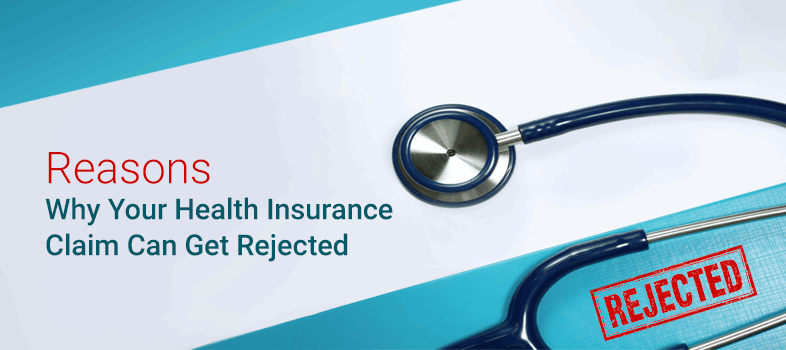As the ancient adage goes, health is wealth. When the therapy for a sickness makes you feel the pinch, these golden words start to make more sense. Stressful schedules, sedentary lives, pollution, food adulteration, and contamination have made staying healthy a huge struggle, and as a result, everyone now understands the need of health insurance coverage. However, in some cases, your claim request may get rejected, much to your surprise. While failing to disclose a pre-existing condition is one of the most common reasons for rejection, there are other reasons as well. Let us see why any health insurance claim can get rejected:
- Incorrect Information
Any disparity, whether it is a legitimate mistake on the form, such as a spelling error, or a genuine attempt to conceal facts such as age, yearly income, lifestyle, and family health details, may result in the claim being denied and the policy being terminated. The sum insured is frequently determined by yearly income and supplying false income information in order to obtain a bigger sum insured might result in claim rejection.
- Pre-existing Conditions
Policyholders occasionally get insurance with the intention of using it for future treatment, but they forget that pre-existing conditions are not covered and try to conceal medical information, which can lead to claim rejection. Pre-existing conditions, such as high blood pressure, are often not covered by insurance providers, thus any medical expenditures incurred as a result will not be reimbursed. This is usually done to prevent people from purchasing insurance right before being admitted to the hospital for a pre-existing medical condition.
- Exclusions
There are additional exclusions, just as there are for pre-existing conditions. Many policyholders fail to read the terms and conditions, which plainly specify that an injury sustained while inebriated or participating in dangerous activities is not covered. Similarly, there is a 30-day waiting period from the date of the policy before any claim may be filed. The waiting period does not apply in the case of an accident, although the accident should not have occurred owing to alcohol. Before phoning the insurance, make a list of the exclusions (mentioned in fine print).
- Policy Period
There have also been instances when people waited a week or a month before renewing their insurance, fell ill during that time, and were rejected a claim. Because the policy expires on its last day, this is the case. As a result, even if one is admitted to the hospital the next day, his or her insurance will not cover him or her. That’s why it’s critical to renew your coverage before the deadline each year.
- Delay in Making a Claim
A tragic accident can be a distressing situation, and a person or his or her family members may forget to notify the insurance company right after. This blunder might exacerbate their concerns. Most health insurance plans provide that the insurer must be notified of a hospitalization within 24 (or in some circumstances 48) hours, or no coverage will be paid. As a result, choosing an insurance from a provider that is available 24 hours a day, seven days a week and reacts quickly is critical. Also, appoint a nominee to notify the insurer and handle the remainder of the paperwork if the policyholder is unable to.
Now that we’ve listed down the most common reasons why your health insurance claim can be rejected, it’s easy to infer that in order to avoid rejection, you need have a thorough grasp of your health insurance coverage, ideally from the start. So read the policy documents thoroughly and ask as many questions from your insurer if the policy document is ambiguous on any of your concerns.

